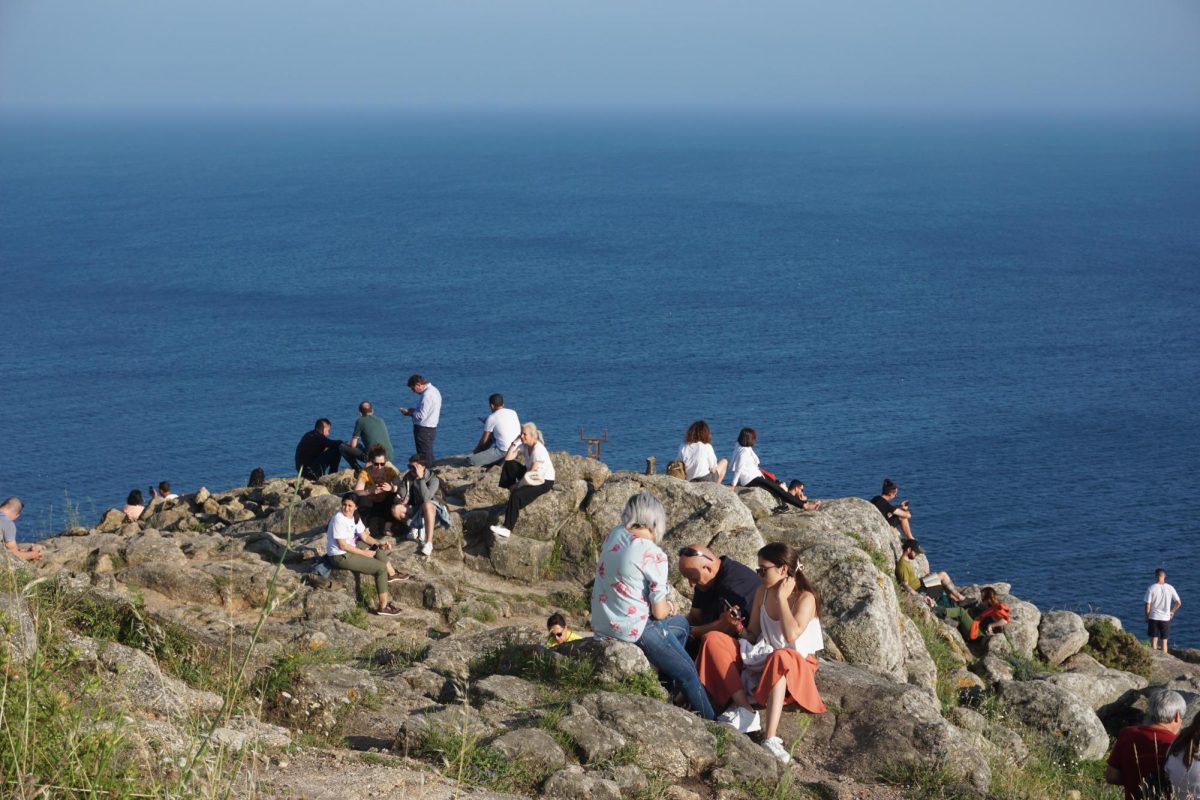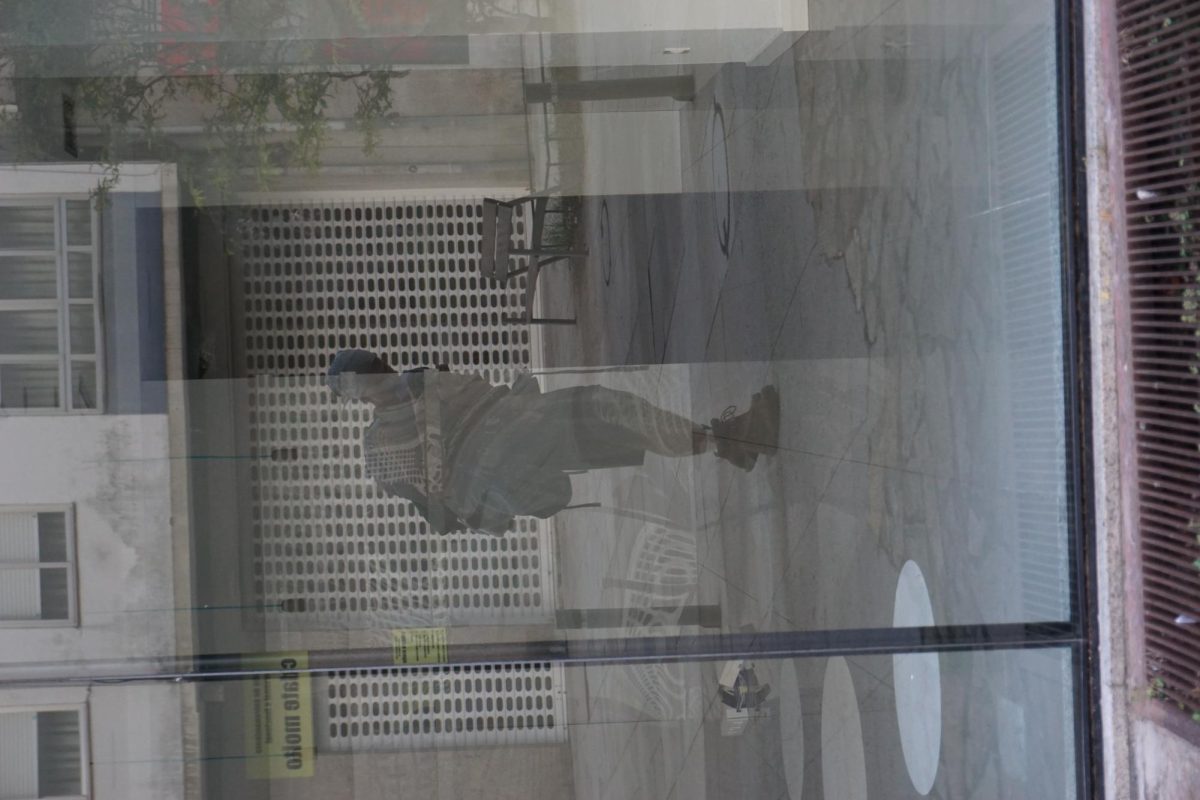I have had people tell me just how much the citizens of other countries disrespect — or are embarrassed by — “The American Tourist” for as long as I have wanted to travel abroad.
They — classmates, teachers, friends — told me that the current political climate, latest partisan polemic, or angsty executive order has united, quite irrefutably, the world against The American Tourist. Now, more than ever, those concerns are amplified. With Donald Trump levying tariffs and saying whatever inflammatory speculation comes to mind, Americans are worried about travel. Would-be travelers see protests and anger, both in Europe and farther afield, and decide to put their trip off for another year, another election cycle.
They are wrong, or at least misguided, to say so and to wait. Unfortunately, the most fundamentally negative American attitude you can take abroad is this: that everyone’s lives revolve around the USA’s politics, struggles and self perception.
Worry too much about being the obnoxious American tourist, and you become what you fear the most.
The oft-expressed warnings and concerns about travel aren’t new, at least in my lifetime. Nor are they the straightforward result of a Trump presidency. Before 2016, when I was in the sixth grade, a classmate told me that her parents would not travel until we had socialized medicine. Then came Trump, and then dire warnings about Joe Biden’s support for Israel or his disastrous withdrawal from Afghanistan.
I am so grateful for my parents, who prioritized travel, who hustled and scraped and saved to take ‘us kids’ on madcap trips across Spain, Greece, Morocco and Italy fueled by cheap bread and cheese, local wine in plastic bottles, and high hopes. They took us to amazing places, not in spite of, but unphased by, these political developments.
“It was so worth it. Getting to see your guys’ eyes light up seeing Europe for the first time – the Alhambra, the bazaar in Tangiers – gosh, that made it so worth it,” said Brandi Graves, my mom and the driving force behind our little family odysseys.
We bunked in cheap Airbnbs that smelled like cigarette smoke and bleach, we haggled at flea markets for our souvenirs, and we were well-taught to count the chance to see an obscure relic in a village church as far superior to any paid tour or lavish demonstration of local crafts and culture.
I’ve talked at length in Yucatan streets with men who were deported from jobs in Sacramento, snitched on bosses unwilling to pay them, and I’ve been thanked by old women, sentimental and teary–eyed, for my great-great uncle’s death in the liberation of Normandy. And in those experiences, I learned that people mostly form opinions about states, not the flesh-and-blood citizens of those places.
Still: something like 72% of Americans believe that they will be more negatively perceived this year, and they probably are right. Democracy bites sometimes, elections have consequences and every citizen bears some responsibility for the wide-ranging wims of our colossal republic.
We already talk too loud and actively shun the metric system – why engender any further disrespect from aloof French waiters or hard-drinking Swiss ski bums? Why not wait?
Because travel is an exercise in abstraction. To step out of your home country is to divorce yourself from a habitual routine – habitual work, meals, and yes, politics.
Do not wait to go, and do not worry about telling someone that you are from the states. If the question comes up, tell someone why you voted for Trump or why you didn’t — in all likelihood, you’ll give them a perspective they haven’t heard, and their reaction, acclamatory or ardently otherwise, will not follow the predictable beats from back home. Tell them why you love their country and ask real questions about the place.
We travel, in part, to kill the ego. To be more vulnerable, to feel things just a little more intensely. By all means, keep a low profile and keep your mouth shut when it behoves you. Back off and offer to buy a beer if the need arises. But don’t go afraid, and don’t go guilefully self-aware.
Bucking the stereotype of the American Tourist isn’t your job: just be cool and you’ll find cool people. Caring about folks as you meet them will go much further than signaling some notional support for their economies or infrastructure.
In 2023, I graduated from high school and was on a plane to Barcelona a week later. With less than two grand earned working odd jobs paid under the table, I walked the Camino de Santiago across Spain — a little over a month, a little under 450 miles.
A few weeks in, a Ukrainian man walked up and regaled me with a breathless chronicle of sordid love lost, a Barcelona woman and a night spent sleeping in a ditch, all before offering to roll me a cigarette and asking me my name.
His name was Alex, he lived in Poland, walked 20 miles a day dressed like a 2010 hipster and became my friend. I asked him what it was like being a Ukrainian immigrant bumming around Europe with the war ranging back in his home country. How did people treat him?
“You know, my dear,” Alex said, “I ate my breakfast across from two Russian pilgrims this morning. I’d rather people pity me for my home country, rather than be those people. But I have no problems with them, because we are all on the road.”
I wrote in my journal that night that if there were Ruskies bold enough to dine with a Ukrainian, and a Ukrainian bold enough to be cool with them, then “an American like me has no right to worry.”
So now, watching the tariffs come and go, I still keep an eye on flights, count my pennies and scheme about finding time off. Steinbeck’s “ancient shudder, the dry mouth and vacant eye, the hot palms and the churn of stomach high up under the rib cage” comes upon me. I don’t know when I’ll get the cash or the time, but I will travel — and I will meet the best sorts of people, despite being an American Tourist.





